Three Ways Social Media Hurts Your Productivity
August 9, 2016
Note From Rochelle
Dear Writers,
I need your help! I’m planning a future #WritersRead post on periodicals—and I’d love to hear about what magazines you read and why.
 Invitation to contribute! Send me your nomination along with 50-100 words about the value you’ve found in the periodical as a writer. Include the periodical’s website and your name. If I choose to use your piece in the post, I’ll let you know in advance.
Invitation to contribute! Send me your nomination along with 50-100 words about the value you’ve found in the periodical as a writer. Include the periodical’s website and your name. If I choose to use your piece in the post, I’ll let you know in advance.
Today’s tip will help you juggle social media, email, and writing. Enjoy!
Happy Writing!
Rochelle, the Write Now! Coach
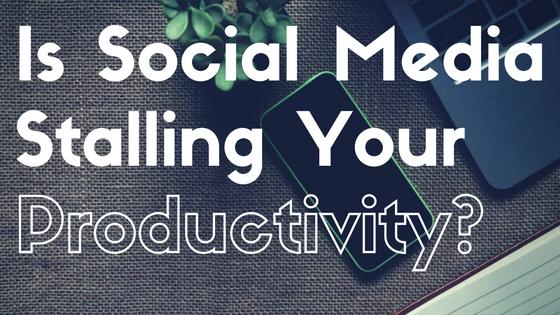
Three Ways Social Media Hurts Your Productivity
and How to Overcome It
by Rochelle Melander
Before my annual social media sabbatical, I contemplated hiring someone to take care of some of my social media work. I chose to save money and do it myself. That meant checking email and posting on social media sites a few times during my break.
Though the actual work took no more than five hours to complete, it catapulted me back into work mode. After answering emails and checking in on Facebook and Twitter, I worried over clients, obsessed about work situations, and fretted about events around the world. Though I was taking daily adventures with my family, I had difficulty being present. The experience reminded me why I take a social media sabbatical every year.
Here’s the thing: I love social media. Through social media, I can connect with interesting authors and thinkers throughout the world. Because of social media, I’ve met fascinating people and learned many new things. Email makes my job possible—and easier. But all of these amazing connections come with costs. Here are some of them:
Deciding what to post taxes our brains
Spending time on social media can lead to cognitive overload. As we surf online and decide what to like, share, and post—our brains get overwhelmed. Instead of thinking about our current writing projects, we’re worrying what people will think about the political meme we posted.
Checking email lowers our IQ
In The Plateau Effect, authors Bob Sullivan and Hugh Thompson mention a disturbing study: “The Institute of Psychiatry at the University of London published a study on infomania that found checking your email while performing another creative task decreases your IQ in the moment ten points. That’s the equivalent of not sleeping for thirty-six hours or double the impact of smoking marijuana.”
Did you get that? If you’re writing your book and take a break to check your email, it affects you like you stepped out to smoke a joint. Holy smokes!
Interruptions make it harder to finish tasks
When we move back and forth between multiple tasks, psychologists call it “context switching.” Jordan Grafman of the National Institute of Neurological Disorders and Stroke says it’s not multitasking but rapid toggling. According to the authors, “One study showed today’s office worker gets only eleven continuous minutes on a project before interruption. But much worse than that, it takes twenty-five minutes for them to return to the original project after interruption.”
And some of us never do. The authors of The Plateau Effect reported on another study that said after we get interrupted, we move to some other task 40% of the time. If you’re a writer, that means that almost half the time, after you stop to check that incoming text or email, you’re not going back to working on your book. You’ve moved to another task.
So what’s the solution?
When I read the research and then tune into what agents say—they want writers with a robust platform—it can feel overwhelming. How can we write great books and build our platform?
Remember: a great platform can’t save a mediocre book. Having returned from a not-so-successful sabbatical, I’m more convinced that I need to set up clear boundaries around social media, email, and other interruptions to write well. We all do. Here are three tools that might help you write more, write better, and still stay connected to social media:
Commit to interruption-free writing time
Block off time, sign off social media, turn off your phone and write. If you find this difficult, start small—30 minutes of writing time a day.
Schedule social media time
Instead of using social media like your office’s water cooler—stopping over to Facebook every time you need a break—schedule time to connect online, just like you schedule time to write. Then, give yourself energy boosting breaks—take a walk, fold the laundry, or play with an animal.
Take a weekly social media sabbatical
Since returning from my sabbatical that wasn’t, I’ve decided to take a weekly break from social media. One day each week, I plan to check out—and do things in the world instead of online. This past Sunday, I went to the art museum and then spent the rest of the day reading on the porch.
Your turn:
How has social media affected your writing?
What do you plan to do about it?
Leave your ideas in the comments below!




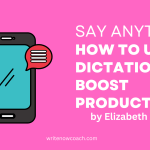
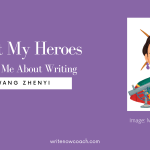
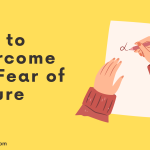
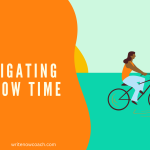







This post was as stimulating and eye-opening as a fresh cup of coffee in the morning. Thanks so much for sharing.
Thanks, Jennifer!
These 3 ways are very accurate. We should not let social media destroy our productivity rate.